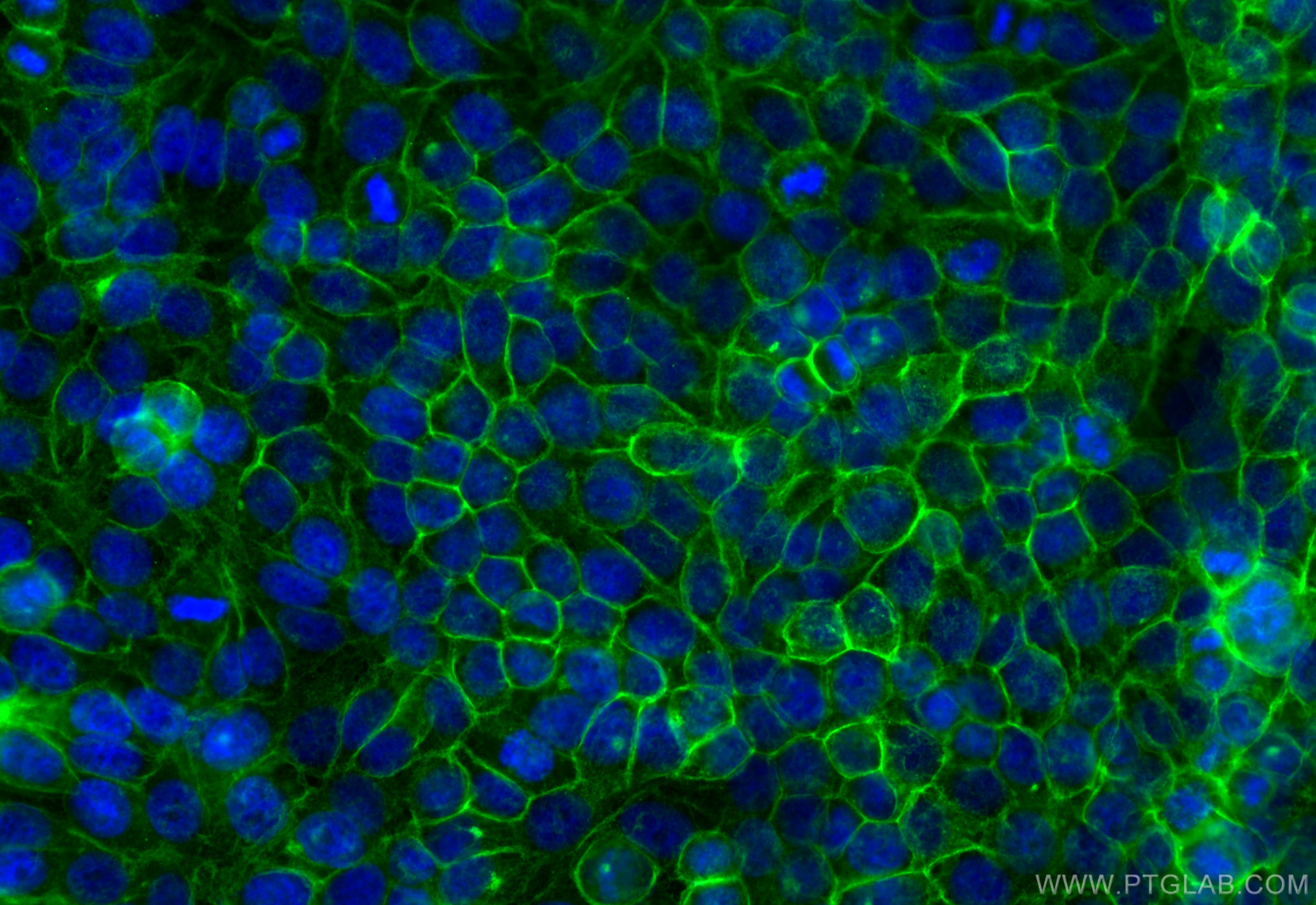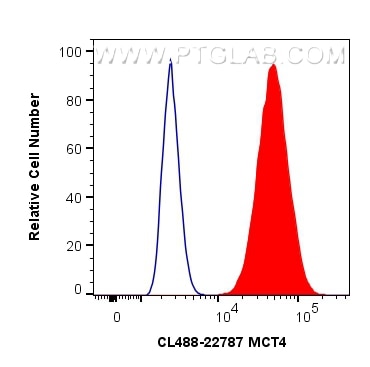- Phare
- Validé par KD/KO
Anticorps Polyclonal de lapin anti-MCT4
MCT4 Polyclonal Antibody for IF/ICC, FC (Intra)
Hôte / Isotype
Lapin / IgG
Réactivité testée
Humain, rat
Applications
IF/ICC, FC (Intra)
Conjugaison
CoraLite® Plus 488 Fluorescent Dye
N° de cat : CL488-22787
Synonymes
Galerie de données de validation
Applications testées
| Résultats positifs en IF/ICC | cellules HepG2, |
| Résultats positifs en FC (Intra) | cellules HepG2, |
Dilution recommandée
| Application | Dilution |
|---|---|
| Immunofluorescence (IF)/ICC | IF/ICC : 1:50-1:500 |
| Flow Cytometry (FC) (INTRA) | FC (INTRA) : 0.40 ug per 10^6 cells in a 100 µl suspension |
| It is recommended that this reagent should be titrated in each testing system to obtain optimal results. | |
| Sample-dependent, check data in validation data gallery | |
Informations sur le produit
CL488-22787 cible MCT4 dans les applications de IF/ICC, FC (Intra) et montre une réactivité avec des échantillons Humain, rat
| Réactivité | Humain, rat |
| Hôte / Isotype | Lapin / IgG |
| Clonalité | Polyclonal |
| Type | Anticorps |
| Immunogène | MCT4 Protéine recombinante Ag18788 |
| Nom complet | solute carrier family 16, member 3 (monocarboxylic acid transporter 4) |
| Masse moléculaire calculée | 465 aa, 49 kDa |
| Poids moléculaire observé | 38-42 kDa |
| Numéro d’acquisition GenBank | BC112269 |
| Symbole du gène | MCT4 |
| Identification du gène (NCBI) | 9123 |
| Conjugaison | CoraLite® Plus 488 Fluorescent Dye |
| Excitation/Emission maxima wavelengths | 493 nm / 522 nm |
| Forme | Liquide |
| Méthode de purification | Purification par affinité contre l'antigène |
| Tampon de stockage | PBS with 50% glycerol, 0.05% Proclin300, 0.5% BSA |
| Conditions de stockage | Stocker à -20 °C. Éviter toute exposition à la lumière. Stable pendant un an après l'expédition. L'aliquotage n'est pas nécessaire pour le stockage à -20oC Les 20ul contiennent 0,1% de BSA. |
Informations générales
The monocarboxylate transporter 4 (MCT4, also known as SLC16A3) is involved in the transportation of metabolically important monocarboxylates such as lactate, pyruvate, acetate and ketone bodies. It is widely expressed, particularly strongly in glycolytic tissues such as white skeletal muscle fibres, astrocytes, white blood cells, chondrocytes and some mammalian cell lines. MCT4 is also linked to tumor biology because it mediates lactate transport across membranes resulting in antiapoptotic effects.
Protocole
| Product Specific Protocols | |
|---|---|
| IF protocol for CL Plus 488 MCT4 antibody CL488-22787 | Download protocol |
| FC protocol for CL Plus 488 MCT4 antibody CL488-22787 | Download protocol |
| Standard Protocols | |
|---|---|
| Click here to view our Standard Protocols |



